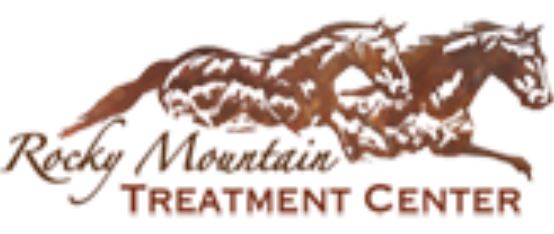Rocky Mountain Treatment Center - TREATMENT REVIEWS
Rocky Mountain Treatment Center is an addiction treatment rehab serving the people of Montana and nearby areas to achieve recovery. The rehab adopts an individualized approach based on a biopsychosocial model of care where all patients get enough time to focus on their social, spiritual, family, behavioral, physical, and emotional needs. The highly trained staff members continue reviewing client information to ensure they receive high-quality care. Backed by the professionalism and knowledge of the staff, the rehab can quickly get anyone started on their recovery journey.
As a part of the treatment plan, the staff members use a blend of evidence-based treatments and time-tested methodologies to give patients new hope for a better life. Ensuring client safety is one of the top priorities at Rocky Mountain, in addition to constantly working to meet their physical, psychological, and medical needs. The facility operates from a 20th-century convent, providing a peaceful atmosphere to recover and heal. The treatment process incorporates 12-step programming and other activities such as speaker meetings, 12-step discussion material, and reading analysis. Moreover, it also uses mental health counseling, equine therapy, nutrition planning, and various holistic therapies for a three-dimensional recovery experience.
Starting the Journey at Rocky Mountain Recovery: What to Expect
If you or someone you love is beginning their treatment journey at Rocky Mountain Treatment Center Great Falls Montana, here is what to expect:
- The first step involves a release of information (ROI) where a patient consents to the rehab to access their medical records and use this information to plan their addiction management. If you have a loved one in rehab, you may call anytime to get an update about them. Rocky Mountain Rehab has 24/7 functional telephone lines through which you can contact a rehab representative and seek information if you have been authorized for it.
- During the first five to ten days, patients will have permission to make outbound calls to connect with their loved ones. This allows them to share their well-being and update others about their progress.
- Visitation hours are fixed and only available on Sundays from 1 pm to 4:30 pm. Visitors cannot bring any beverages or food from outside the facility. Any packages that they wish to deliver to their loved ones in treatment will be subject to inspection and examination by the rehab team.
- The family week typically begins when a patient has covered at least one-half or two-thirds of their treatment journey at Rocky Mountain Rehab. The rehab staff encourages all family members to write down notes and prepare themselves to share how their loved one’s addiction has impacted their relationship. The rehab will send out a packet in the mail to the family members, briefing them about what to expect during family therapy.
Treatment Overview at Rocky Mountain Addiction Treatment Center Montana
Rocky Mountain Addiction Treatment Center offers the following programs to clients based on their needs:
Medically Monitored Detox
Detox is the very first step of addiction treatment for most people who join Rocky Mountain. This process involves removing all harmful addictive substances from the body and can be physically, mentally, and emotionally draining. The risks can further heighten if it does not take place under expert supervision. Fortunately, the detox team at Rocky Mountain has lots of experience in helping people get through this process while ensuring their safety and comfort.
Residential Care Programs
Residential care programs at Rocky Mountain allow clients to seek therapy and support on-site, where they are under 24/7 supervision. These programs run for 30, 60, and 90 days depending on the intensity of the addiction, and use evidence-based treatments and holistic and recreational therapies.
Post-Treatment Care
A lot of people wrongfully believe that completing a rehabilitation program at a professional treatment center is the cure for their long-term addiction. Remember that while these programs are beneficial for giving the initial push, most people require aftercare to succeed in recovery. Without aftercare, such people can have many difficulties navigating through life while maintaining their newfound sobriety. They also have a high risk of relapse, especially during the initial few weeks or months of leaving the rehab. For such people, Rocky Mountain Treatment Center Montana provides a post-treatment care package, also known as aftercare treatment, to ensure that everyone who leaves the facility has a specific, strong, and clear plan to lead their lives after treatment.
Read Also About Coalition Recovery Tampa
Some common elements of an aftercare plan at Rocky Mountain include intensive outpatient treatment, group therapy, mental health counseling, sober living, and other services that clients may need to successfully get back into community living. The aftercare package also allows clients to engage in free weekly group counseling sessions that take place on-site and allow people to maintain their recovery progress. The collective aim of all these services is to support clients as they make a seamless transition from rehab back to their homes and the community.
At Rocky Mountain Addiction Rehab, each client gets a case manager working closely with them to assess their needs. Based on their needs, these managers design an aftercare program in such a way that it reinforces the coping methods and skills that clients learned during their onsite treatment and helps them feel comfortable and well-supported as they start over their lives. This support goes a long way to pave the way for years of sobriety.
FAQs
Does Rocky Mountain Rehabilitation Center accept insurance?
Fortunately, Rocky Mountain Rehab accepts various insurance policies, such as those from the following companies:
- Blue Cross Blue Shield
- PacificSource
- Montana State Fund
- Allegiance
- Aetna
- United Healthcare
- Cigna
- EBMS
- Montana Co-Op
What if I don’t have any insurance?
If you do not have insurance coverage, you may consider self-paying or opting for a finance option. For self-pay, the rehab accepts all major credit cards.
Can I keep my mobile phone with me during treatment?
At Rocky Mountain Rehab, the treatment team believes that all electronic devices, including cell phones, serve as a distraction during treatment. Hence, the facility aims to remove these everyday distractions and other concerns so that clients can solely focus on their addiction-related issues and deal with them individually.
My loved one is in treatment at Rocky Mountain. What can I do for them from home?
While you wait for your loved one to complete their treatment and recover from addiction, the staff at Rocky Mountain encourage you to write letters of support and encouragement as they play a priceless role in an individual’s recovery. All family members are recommended to write more than once a week to their loved ones in treatment to make them realize that they are not alone.
My loved one may not bring up certain issues during therapy. How can I contact their counselor to make them aware of this?
In such circumstances, the best way is to get in touch with the counselor by writing them a letter. If this option does not work for you, you may consider leaving a message on the counselor’s voicemail. Remember that the rehab ensures the signing of ROI papers before making any response to protect their client’s confidentiality and privacy.
What should I do if my loved one wants to leave treatment early?
It is common for many people receiving addiction treatment to leave early. This happens because, during the initial days, such people start experiencing feelings of euphoria as they regain control of their bodies. As they start feeling more alive after a very long time and experiencing emotional stability and mental clarity, they believe they are ready to tackle the rest independently. However, they don’t realize that their bodies have only begun to heal and have a long way to reach full recovery.
Moreover, these positive feelings and energy they are feeling are temporary and will be soon overcome by negative emotions if they leave treatment earlier than needed. So try to reason with them and gently explain how leaving treatment before completing it can lead to a very high risk of relapses which will destroy all progress and bring them back to square one. Encourage them to commit to the initial program for a successful and happy life in the long run.
Rocky Mountain Treatment Center- Cost/Prices, Center/Clinic/Retreat/Resort Facilities, Inpatient Treatment Program Services
- Title Rocky Mountain Treatment Center
- Treatment Program Addiction / Mental Health / Alcohol Addiction / Drug Addiction / Pathological Gambling / Detox / Anxiety Disorders / Depression / Eating Disorders / Trauma & PTSD / Dual Diagnosis / Personality Disorder
- Location United States
- Languages English
- Accommodation Shared Room
- Environment Mountain, Countryside
- Age Young Adult, Adult
- Approach 12 Step, Medical, Holistic, One to One, Group, Spiritual
- Method Equine-Assisted Therapy, Family Therapy, Maditation, Mindfulness based stress reduction (MBSR), Sport Activities, Psychotherapy, Yoga, Medical Detox
- Aftercare Yes
- Amenities Insurance Accepted, Walking, Leisure Activities
- Gender Women & Men
Rocky Mountain Treatment Center Contact
- E-mail info@rehabrocky.com
- Website https://rehabrocky.com/
- Phone +1 4067278832
- Address 920 4th Ave N, Great Falls, MT 59401, United States.

 Rocky Mountain Treatment Center
Rocky Mountain Treatment Center




